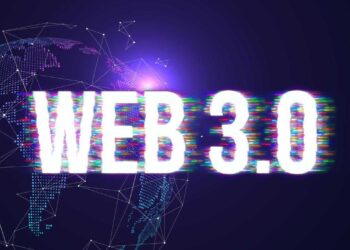The fusion of artificial intelligence (AI) and cryptocurrency is quite an exciting narrative in the Web3 space, especially because of the many mind-blowing possibilities it can bring about.
There are already a number of projects pushing the boundaries of digital finance, decentralized applications (dApps), and user experiences by introducing AI-driven capabilities to blockchain systems. And they are gaining momentum. The market for AI-driven crypto projects is valued at around $32.6 billion in November 2024.
We are already seeing immense excitement among investors, developers, and blockchain enthusiasts. However, amidst this buzz, a critical question arises: Are AI-powered crypto projects the bedrock of Web3’s future, or are they merely the latest speculative trend? To answer this, we’ll examine the current state of AI-crypto projects, the challenges they face, and their potential for long-term viability.
The Current Landscape of AI-Driven Crypto Projects
AI-crypto projects integrate artificial intelligence with blockchain technology to create smarter, more efficient Web3 applications. These projects span diverse sectors, from DeFi to gaming. They leverage AI’s predictive, analytical, and automation capabilities to optimize trading, enhance security, and drive innovation in non-fungible tokens (NFTs), gaming, and data marketplaces.
Enhancing DeFi and Market Predictions
AI plays a pivotal role in DeFi by optimizing security, efficiency, and performance. For instance, platforms like CertiK use AI to audit smart contracts, identifying vulnerabilities before they are deployed. AI trading bots, such as those offered by SingularityDAO, analyze market sentiment and trends in real-time to help users maximize gains and minimize losses. Similarly, Numerai employs AI algorithms to predict financial market movements, offering traders valuable insights in a highly volatile landscape.
Revolutionizing NFTs and Gaming
In the NFT space, AI is enabling the creation of dynamic, interactive digital assets. Platforms like Art Blocks allow users to generate unique, algorithmically designed artworks tailored to their preferences, adding a layer of personalization to NFT collections. Alethea AI’s interactive NFTs (iNFTs) take this concept further by enabling NFTs to communicate with users and evolve over time, making them ideal for gaming and virtual worlds.
AI also transforms gaming by introducing lifelike non-player characters (NPCs) and personalized content. Companies like Inworld AI collaborate with developers to create NPCs capable of adapting to player behavior, making gameplay more immersive. Virtual worlds like Decentraland and The Sandbox are also integrating AI to customize in-game assets, ensuring that players’ experiences reflect their individual preferences and activities.
RELATED: Exploring The Synergy of AI and Blockchain: Top AI-Cryptocurrency Projects You Need To Know
Redefining Data Marketplaces
AI-driven data marketplaces such as Ocean Protocol are pioneering new ways for users to monetize their data while maintaining privacy. These platforms use AI algorithms to analyze sensitive information, such as medical or financial data, securely and transparently. Fetch.ai further facilitates secure data transactions, fostering a decentralized data economy that benefits both individuals and AI developers.
By introducing automation, intelligence, and personalization, AI-crypto projects are redefining how users interact with blockchain ecosystems.
Challenges Facing AI-Crypto Integration
Despite its promise, integrating AI with blockchain is fraught with technical and ethical challenges that could hinder widespread adoption.
Scalability and Processing Power
AI applications require significant computational resources for tasks like model training and data analysis. Traditional blockchain networks, particularly those using proof-of-work consensus mechanisms, struggle to meet these demands due to their limited processing speed and scalability. While solutions such as sharding and off-chain processing are being developed, they are far from universally implemented.
Privacy and Data Security
Blockchain’s inherent transparency can conflict with AI’s need for sensitive data access, especially in healthcare or finance applications. Innovative techniques like zero-knowledge proofs are being explored to securely share data while preserving privacy, but implementing such solutions at scale remains a challenge.
Ethical Concerns and Data Ownership
AI systems thrive on data access, but Web3 is built on the principle of user ownership and control over personal data. This creates potential conflicts regarding consent and data usage. Without clear, enforceable guidelines, AI-driven platforms risk eroding trust by misusing or exploiting user data, leading to ethical dilemmas around profiling, manipulation, and surveillance.
Addressing these challenges is crucial to ensure that AI-crypto projects remain user-centric, transparent, and secure.
Adoption and Long-Term Viability of AI Agents in Web3
AI agents—autonomous programs capable of executing blockchain tasks—are emerging as a key focus in the Web3 space. They streamline complex processes such as smart contract interactions, staking, and DeFi transactions. In 2024, venture capital investment in AI-related blockchain projects exceeded $213 million in Q3 alone, a 340% year-over-year increase. Experts predict that the AI Agent market could balloon to a staggering $47.1 billion by 2030.
Developers are also keen to explore the synergy between AI and blockchain, creating applications that automate complex tasks like DeFi transactions, staking, and tokens. James Ross, founder of Mode Network, predicts that over 80% of blockchain transactions could be managed by AI agents within the next 6 to 12 months—a timeline he recently revised to reflect rapid advancements in AI integration. However, sustaining this momentum will require these agents to demonstrate clear, lasting value beyond early adopters.
The hype surrounding AI-crypto projects has attracted not only genuine innovation but also opportunistic scams. Ensuring the long-term success of AI agents will depend on their ability to solve persistent challenges within Web3 while maintaining transparency and accountability. If these projects fail to provide tangible benefits—such as enhanced security, faster transactions, or improved accessibility—they risk losing user trust and adoption.
Final Thoughts
AI-crypto projects represent a significant evolution in the blockchain space, blending cutting-edge technologies to unlock new possibilities. By enhancing DeFi, revolutionizing NFTs, personalizing gaming, and redefining data ownership, these projects are pushing Web3 closer to its full potential. However, their long-term viability hinges on overcoming technical limitations, addressing ethical concerns, and delivering sustained value to users.
As the market continues to mature, the next few years will reveal whether AI-driven crypto projects are a cornerstone of Web3’s future or just another passing trend. For now, their ability to innovate and adapt makes them a promising, if uncertain, addition to the blockchain ecosystem.
Disclaimer: This article is intended solely for informational purposes and should not be considered trading or investment advice. Nothing herein should be construed as financial, legal, or tax advice. Trading or investing in cryptocurrencies carries a considerable risk of financial loss. Always conduct due diligence.
If you would like to read more market analyses like this, visit DeFi Planet and follow us on Twitter, LinkedIn, Facebook, Instagram, and CoinMarketCap Community.
Take control of your crypto portfolio with MARKETS PRO, DeFi Planet’s suite of analytics tools.”























